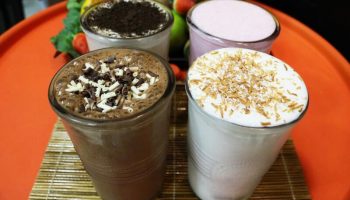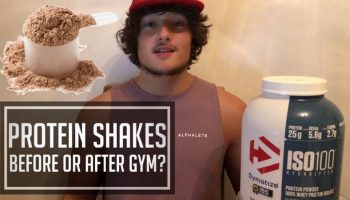As we get older, we might not feel old in soul, but we gradually start to feel and detect the physical toll era has on our bodies.
It’s necessarily normal for things to slow down; our own bodies don’t work as they used to, and in certain instances, the chronic disease becomes more likely.
All in all, the population is growing older and with this growth in age comes a heightened desire to reduce aging, maintain skin healthy & youthful, and improve wellbeing.
But a few of the aspects which impact aging are inevitable.
These include:
- Time,
- genetics,
- and mutations that happen as part of regular cellular processing
… all of which are (sadly ) out of our hands.
Fortunately, there are some aging variables Which Are in our control, for example:
- Our exposure to sunlight and pollutants, including
- alcohol ingestion,
- smoking,
- and nourishment.
The progress of modern medicine has helped a great deal with our quest to survive longer and protect against chronic illness.
For many, but the concept of a life of tablets doesn’t seem as attractive as a natural remedy.
How Do Supplements Fight Aging?
Supplementation of crucial and anti-inflammatory nutrients to protect against the aging process has come to be a big field of research as well as a bigger business.
An overview of supplements printed in the journal Clinical Software for Aging said: “The practice of aging results in physiological and biochemical changes which may be slowed down and occasionally reversed via the right utilization of dietary supplements. ”
In summary: While we can’t stop the aging process in its tracks, the capacity to slow down it with these nutritional supplements appears quite possible.
So, what nutritional supplements do we take to help slow down the aging process and help us feel and look that our very best?
Ahead we will examine the seven popular anti-aging nutritional supplements, the present scientific research on these, recommended dose, and their effectiveness.
7 Natural naturally-occurring Nutritional Supplements
Vitamin C
Vitamin C is a vital water-soluble found in fruits and vegetables, for example:
- Oranges,
- grapefruit,
- green and red bell peppers,
- and broccoli among others.
Adult guys desire 90 milligrams of vitamin C every day and mature women 75 milligrams daily to keep normal bodily processes. Since it’s found in a lot of common foods, many adults have the ability to fulfill this RDA (1).
Often times once we think about aging, we all consider how we look. Like what will occur to our formerly young skin once we get old; matters such as age spots, wrinkles, and sun damage.
Sun damage really contributes to a lot of the bodily signs of aging we view and can be called photoaging.
Damage from the sun is responsible for a whole lot of oxidative stress within our own bodies. This is when items are known as reactive oxygen species, or ROS, are overly plentiful within the human body.
As soon as we have a lot of them, oxidative stress occurs and this has a negative effect on our physiological functions.
How can vitamin C combat aging?
Antioxidants, like vitamin C, are all helpful in scavenging such as ROS and eliminating them from our own bodies. This procedure is thought to provide vitamin C so a lot of its anti-aging consequences.
When used topically, vitamin C may have a range of positive effects against skin aging and damage. It functions not just to shield from the above-mentioned photoaging, but also to assist reverse visible signs of aging.
Vitamin C functions closely with hydration, a protein that’s essential for supplying our skin with construction, to maximize its creation, stabilize its fibers and to reduce its own degradation.
Plus, the decreases melanin, which may reduce the expression of pigmentation; or age spots due to sunlight.
Vitamin C also works synergistically with another antioxidant vitamin E. Both of these antioxidants work together to safeguard against oxidative damage (two ).
Vitamin E
Vitamin E is a vital, fat-soluble, vitamin we will need to eat through food resources to keep our bodies working correctly.
It’s naturally found in foods such as:
- Walnuts,
- citrus seeds,
- peanuts,
- and almonds; others.
Adults want approximately 15 mg daily to keep healthy.
How can vitamin E combat aging?
As is true with vitamin C, vitamin E is also an antioxidant, which may help protect against oxidative stress.
Comparable to vitamin C, it has shown effectiveness in healing photoaged skin and reversing skin damage.
Among the most biologically active forms of vitamin E is alpha-tocopherol. Concentrations of the from the skin are lower when we’re subjected to UV light, which may ultimately cause skin damage.
But, we know that when taken orally, or applied topically, people can rejuvenate this vitamin E and protect our skin from depletion via UV light and also the following indications of aging (1).
Along with aesthetic signs of aging, vitamin E has also demonstrated to have a neuroprotective effect in mice models, preventing premature aging (3).
As this hasn’t been well researched in people, it’s a promising finding which might point to the usage of vitamin E in protecting against age-related bronchial ailments later on. Obviously, more human studies are required to make certain.
Coenzyme Q10 (CoQ10)
Another antioxidant that’s super helpful from the aging procedure is coenzyme q10 (coq10). While not an important one, such as vitamin C and vitamin E, its own levels from the human body do deplete over time.
This can be of concern due to its important role in energy generation for your body, and its own function in the aging procedure.
How can coq10 fight aging?
Recent research indicates that coenzyme q10 can play a part in several age-related chronic ailments. This includes not merely the avoidance of cardiovascular disease but also it’s capacity to take care of the mind against degenerative diseases like Alzheimer’s and Parkinson’s (4). So, as we start to eliminate CoQ10 with age, all else being equal, we’re probably becoming more likely to those chronic ailments.
Researchers are working to determine whether supplementing with coenzyme q10 to replenish our depleted shops may actually be of considerable importance in preventing the onset of the diseases.
Because coenzyme q10 could be generated by the body, there’s not any present established RDA or level we will need to eat every day. But when taken as a nutritional supplement for total wellbeing, the normal dose is approximately 100 mg every day.
Studies concerning chronic disease have used it in dosages up to 1200 milligrams (4).
Quercetin
Quercetin is a bioflavonoid That’s well known for the:
- anti-allergenic,
- anti-inflammatory,
- and anticarcinogenic effects
… because of its capacity to serve as an antioxidant and scavenge free radicals.
It’s found in many fruits and vegetables, for example:
- grapes,
- blueberries,
- cherries,
- onions,
- and broccoli.
… and has been analyzed in its own supplement form its own anti-aging consequences.
How can quercetin fight aging?
A research conducted in 2016 hunted to demonstrate the effects of topically applied rutin, a quercetin glycoside, together with lots of the very same attributes, as an anti-aging nutraceutical.
Outcomes from this study demonstrated its capacity to boost dermal depth, enhance the look of wrinkles around the face and below the eyes, and enhance the elasticity of the skin (5).
Besides its topical program for skin wellness, quercetin has also been found effective for the prevention and treatment of many neurodegenerative disorders.
While the precise mechanism remains unknown, it’s believed that its antioxidant properties can play a part; since it’s regarded as 6 times more powerful as an antioxidant than vitamin C (6).
Ultimately, it’s also been proven to lengthen the lifespan in several animal models (7).
Though the mechanism of action is still being elucidated for all these anti-aging procedures, quercetin is a promising supplement for both aesthetic and physical health as we get older.
Epicatechin
Epicatechin is a flavonol utilized in various food resources. While green tea apple, berries, and grapes are a fantastic supply, cocoa beans include the maximum amount.
How can epicatechin fight aging?
Epicatechins were studied due to their wellbeing effects since, inhabitants on an island out of Panama, where cocoa beans are frequently consumed, were much less affected by chronic disease and revealed a longer life span than people residing in Panama.
Ever since that time, cocoa and chocolate beans are analyzed in an effort to spell out their anti-aging consequences.
While the Precise mechanism Isn’t understood, researchers have revealed it has the capacity to:
“enhance blood vessel function,
- insulin sensitivity,
- blood pressure,
- and inflammation
… all of that could be connected to the aging process;” they forecast that Epicatechins can play a role (7).
Resveratrol
Who does not like to end the day with a glass of wine?
Well lately, it’s been all over the news which a glass of red wine includes a plethora of health benefits, such as diminishing the risk for coronary heart disease.
To those who drink red wine, then you simply got a significant justification.
How can resveratrol fight aging?
The main reason for all these health claims appears to be the simple fact that red wine includes a polyphenolic molecule known as resveratrol.
Resveratrol has been demonstrated to work in preventing diabetes, specific cancers, and Alzheimer’s disease; most of which can be connected to the aging process (7).
As many successful animal trials have demonstrated resveratrol’s capability to expand the lifespan and protect against chronic illness, human studies are still in their way.
Some short term research using small sample sizes have demonstrated effectiveness, but more study and better-designed research are essential.
Due to more human studies are required, a dose for the usage of resveratrol for individual wellbeing and anti-aging isn’t now known (7).
Zinc
Zinc is a vital nutrient that we have to get from food resources. It’s so significant that it is necessary for 300 different enzymatic procedures, and above 2,000 transcription factors in gene regulation rely on zinc to get the job done!
Once we are deficient in zinc or bodies encounter:
- Growth retardation,
- immune disorder,
- oxidative stress,
- and may even create Wilson’s disease (8).
Zinc is frequently utilized in medications that work to stop or shorten the length of a cold and also have been used to reduce diarrhea in babies, and for treating eye-related ailments (8).
How can garlic combat aging?
Much like lots of the supplements mentioned previously, zinc is an antioxidant. Because of this, it’s being utilized to help reduce chronic diseases such as atherosclerosis, cancer, and neurodegenerative diseases.
All these are connected to the aging process, producing zinc still another antioxidant which may operate to help enhance the aging process in adults (8).
Also like lots of the supplements mentioned previously, more clinical trials with people are essential to ascertain how well plaque works as an anti-aging nutritional supplement (if at all) and in which does it’s effective.
The Main Point
With an aging population, the demand for natural treatments that help attain longevity, aesthetics and health endurance, is on the upswing. While not all of the aging procedures can be reversed, but there are a whole lot of extrinsic things that advance the aging process, which you’ll be able to stop or treat beginning at the moment.
We mentioned them at the start, and they are so important we will state it again.
These variables include:
- Excessive sunlight exposure,
- contamination,
- alcohol ingestion,
- smoking,
- and nourishment.
Ideally, we’d consume all the most effective anti-aging nutrients during our daily diet; however, this isn’t necessarily an alternative. Therefore, supplements may work together with the correct whole foods diet and supply additional nutrition in a concentrated way.
The vast majority of the supplements found to be helpful in the anti-aging procedure are antioxidants. They function to scavenge free radicals and reduce oxidative stress within the body.
The analysis of nutritional supplements in people is obviously an important step in deciding whether they are efficacious for use in people. Favorable findings from animal research don’t automatically translate to those supplements using a positive impact on people, but they do open the door for well-designed human trials to be conducted.
Nevertheless, lots of the nutrients mentioned previously are well researched in animal models and a few are in the process of being analyzed in human versions. Researchers and the public alike are eagerly anticipating these outcomes, as we continue to age and search for organic fixes.
Meanwhile, with vegetables, fruits, red wine and chocolate showing preliminary efficacy- that the anti-aging procedure might be tastier than we believed. As always, nevertheless, everything in moderation.
*It is wise to talk with your health care provider prior to starting any new supplement program. A few of the supplements may interact with other medicines you could be taking and a few have side effects not listed within this review.





